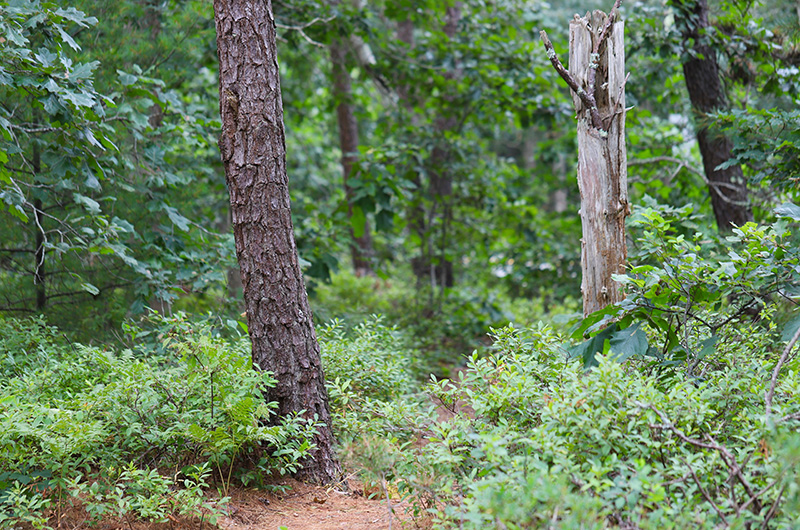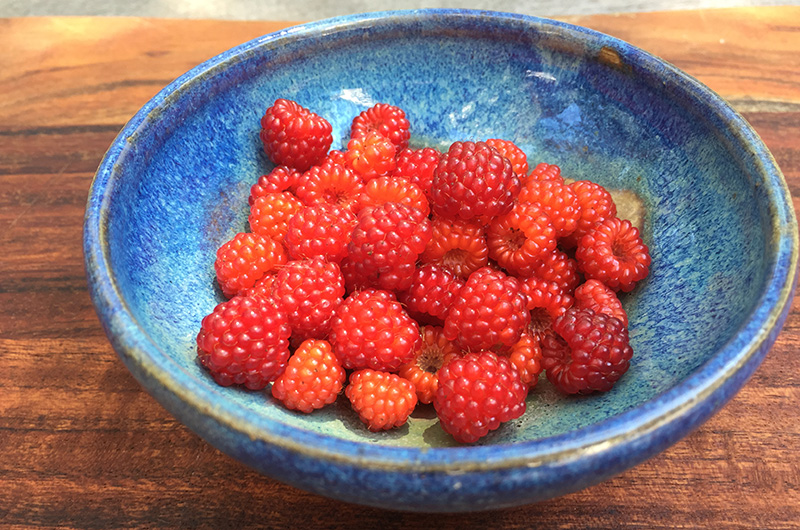The winds came and brought August, carried us over the steep mount of summer, pushing us gently back down the other side.
Even before the winds, I knew. Got that feeling that summer was burning itself out, Icarus-style, while I hovered close to the ground.
Dusk began to slide ever so slightly backwards towards the close of my workday, the time when I unglue from the computer to water the garden, pick the beans, hunt for tomato hornworms, feed the dog, wash the salad greens, take out the sauté pan, mince garlic.
There is a late-day walk on the bike path in the state forest, pushing dinner on even later into the evening. This walk is my single determined effort to take part in the Vineyard landscape, to tap into that beauty lest the summer magic disappear behind a veil of noise and traffic.
“Seeing a small, beautiful thing can transfix the insides.” That’s what author Sarah M. Broom said last week while being interviewed by Thelma Golden for the 2020 Martha’s Vineyard Author Series. (The interview itself transfixed me.) She was asked how she stays inspired to write during the restrictions of the pandemic, and she responded with the assertion that it is necessary to look for beauty, to allow oneself to seek it, and to allow beauty to bloom where you might not know it existed.
My walk in the forest, taken nearly every day during the pandemic, not only offers me that opportunity but provides me with a precise botanical record of the micro-progression of seasons. This spring I watched the ferns unfurl, the wild false indigo shoot its stalks through the sandy soil dumped alongside the bike path. By June those shoots were branched and bushy, three feet tall and wide, soon to be covered in tiny yellow flowers, followed by homely pea-like pods.
Now the yellow along the path is coming from the tall swags of goldenrod blossoms, blasting off slender stems like fireworks. The first lilliputian white asters have appeared. Goldenrod and asters are quintessentially fall flowers; I’m sorry but that’s truth. And perhaps you noticed the overnight appearance of Queen Anne’s lace, which loves to hug a dirt roadside, hang out in a ditch, defy drought. It’s a harbinger.
But there’s time.
Only last week, I looked down and spotted two perfectly ripe black-blueberries, maybe the last two of thousands scavenged by every living creature out in those woods, rabbits and skunks and every bird known to man (except the heath hen). Somehow left for me to find. Yesterday I spied a wayward branch of ripening black raspberries; just a scrap of a plant close to the rotted tree trunk that marks my exit off the path and return to home.
Collecting berries — for that matter, collecting any number of things from heart rocks to sea glass — is for me one of the main ways I ground myself, or at least try to capture, a part of the fleeting Vineyard summer. Other friends swim every single morning, walk at sunrise with camera in hand, or linger in a deck chair every evening to watch the Vineyard night sky do its thing. Stargazing is one of the best ways to appreciate the generous beauty of this Island.
But I stare at the ground, study fence posts and stonewalls for brambles, examine tree trunks, scour roadsides, reach blindly into thickets. This past Saturday we walked a land bank trail I once frequented in a former life, and I was filled with glee to discover the vigorous patch of thorny blackberry canes I remembered, spotted with ripening berries. The canes arched over a sea of tall purple-blossoming Joe-Pye weed. We picked the blackest berries and ate them right on the spot.
As we crossed over a stream on a small wooden bridge, the warm air smelled like honey, and I soon realized we were surrounded by blooming clethera, the shrub that provides so much nectar for Island bees. A jar of raw summer honey from the Island Bee Company tastes exactly like that aroma.
Over the weekend I also stumbled on some wineberries while on an errand to Seven Gates Farm. I wasn’t specifically looking for them; I’d been staring down at my feet, realizing as my less-than-perfect vision struggled to focus that I was looking at little green apples in the grass. Which meant, of course, that I should change the direction of my gaze and look up. Yes, I was standing under a giant old apple tree.
And across the dusty driveway was another gnarled tree I felt compelled to investigate. It wasn’t an apple tree, but it was covered in a profusion of wild wineberries. Hoping nobody was looking, I took off my paper mask and filled it with as many as I could pick quickly. Ripe wineberries practically fall into your hands. If only they were as tasty as their raspberry cousins. But I shouldn’t complain.
As tantalizing as the woods and wild berries are to me now that I’ve lived on the Vineyard for many years, I was raised on sea and sand and am now desperate to get to the shore and walk barefoot on the hot sand and feel that silky August breeze on my skin while the sun is still high in the sky. We have had exactly one evening picnic on the beach — better than none at all, but I hope the rest of you are doing better than me. I did wander onto a spit of sand in Lagoon Pond yesterday, a spot reachable from the crowded parking lot of Tisbury Marketplace. I found myself picking up pieces of purple clam shell, drawn to the fabulous variations in one color that nature can produce in a single species.
Walking back to the car I noticed there was a picnic table there, next to an abandoned row boat, and farther along, a group of friends in portable beach chairs, obviously determined to eat their take out (fried clams, flatbreads, pizza?) in the outdoors. I never realized there was a sort of park so close to this shopping area.
Those folks had the right idea, that’s for sure. It only takes a small shift in mindset, a minor movement of muscle, to shake up a routine — to stop at the beach, have dinner outside, take a trail walk before dinner, sit on the front step and look at the stars. Anything worth doing on the Vineyard in August is better done outside. How lucky we are — what better place to be in a pandemic?






Comments (3)
Comments
Comment policy »